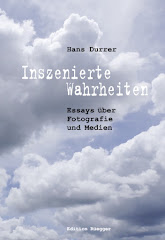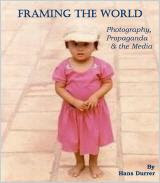Sometimes, when journalists feel the need to prove how important they are - okay, forget the 'sometimes' - they mention their interview partners and we then get to read or hear that journalist so and so talked with the prime minister, the foreign minister, the president etc. The typical questions go along these lines: How do you feel about this and that, what are your plans for the future etc. etc. It is all a bit of a joke, really.
I mean: the last person - actually, the very last person - I would ask if I wanted to understand a certain political problem is some minister or some governmental spokesperson. Remember the riots in Bangkok of last May? The Tagesanzeiger in Zurich interviewed the Swiss ambassador! Well, what does an ambassador know except how to read newspapers (in Thai?), converse with other ambassadors, and meet with business people?
Official versions are always polished versions, they never tell the truth. It does not cease to baffle me that we even bother to listen to them. Well, come to think of it - we probably don't.
Sunday 29 August 2010
Wednesday 25 August 2010
Spinoza's Plan for Salvation
 Finding a way to live meaningfully is not easy. If it were, we should certainly judge men insane who find meaning in killing each other. We may even wonder about ourselves, why we so often see the right but do the wrong. So many things happening in the world and in our own lives seem so completely crazy, we're apt to think, as many idealistic people do, that humankind is for the most part mad.
Finding a way to live meaningfully is not easy. If it were, we should certainly judge men insane who find meaning in killing each other. We may even wonder about ourselves, why we so often see the right but do the wrong. So many things happening in the world and in our own lives seem so completely crazy, we're apt to think, as many idealistic people do, that humankind is for the most part mad.That's an escape hatch Spinoza never used. He accused philosophers - obviously excluding himself - of being dreamers who "conceive men not as they are, but as they would like them to be." "They (moralizing philosophers) have learnt how to shower extravagant praise on a human nature that nowhere exists and to revile that which exists in actuality." Spinoza's indictment remains as true today as it was in 1676 when he began his Political Treatise. Cable TV religionists and other modern-day moralists castigate as degenerates (or sinners) those of us whose actions do not measure up to so-called Biblical laws. While this approach to the maintenance of order marginally achieves its goals, the population of our prisons (plus the number of us who would rightfully be in prison if the civil laws were universally enforced) suggests the moralists' "methods are unsound".
Franklin Lonzo Dixon, Jr.: Spinoza's God
Sunday 22 August 2010
Anahit's self-portrait
 Self-portrait @ Anahit Hayrapetyan
Self-portrait @ Anahit HayrapetyanDuring her pregnancy, the photographer and poet Anahit Hayrapetyan is taking photos of herself which - although not an easy task - helps her to better understand the changes she is experiencing in her body and mind. At the same time she is writing poems that she plans to turn into a small book after the baby is born.
Wednesday 18 August 2010
On flights
On a recent flight from Lisbon to Zurich an announcement was made that I could not understand. What language was this?, I asked the air hostess. Portuguese, she said. No, it isn't, I smiled. Okay let me check, she answered. It turned out to be Romanian - the previous Swiss flight had been to Bucharest.
Years ago, at Johannesburg Airport, a pitch dark, rainy African night, the pilot says: Welcome, Ladies and Gentleman to this flight to ... äh ... äh ... äh ... sorry ... äh ... Durban, right ...
On Thai Airways International, I asked the air hostess how the weather was in Bangkok: In Thailand we have three seasons, she smiled: hot, hotter, hottest.
Twice I had been on flights I was not supposed to be on, from Skiathos to Athens, and from Lombok to Bali.
In Lombok, I was a day early for my flight to Bali but they did not pay attention and checked me through. Once all the passengers were on the plane, they realised that there was one too many and frantically tried to find that person. I kept quiet. Finally, they decided to leave an air hostess behind.
From the Skiathos-Athens flight I only remember that the scheduled plane did not arrive and that I somehow made it onto a smaller plane. After they read out the passenger list, they asked whether there was somebody on board who had not been mentioned. I had not but remained silent ... and so we took off.
Years ago, at Johannesburg Airport, a pitch dark, rainy African night, the pilot says: Welcome, Ladies and Gentleman to this flight to ... äh ... äh ... äh ... sorry ... äh ... Durban, right ...
On Thai Airways International, I asked the air hostess how the weather was in Bangkok: In Thailand we have three seasons, she smiled: hot, hotter, hottest.
Twice I had been on flights I was not supposed to be on, from Skiathos to Athens, and from Lombok to Bali.
In Lombok, I was a day early for my flight to Bali but they did not pay attention and checked me through. Once all the passengers were on the plane, they realised that there was one too many and frantically tried to find that person. I kept quiet. Finally, they decided to leave an air hostess behind.
From the Skiathos-Athens flight I only remember that the scheduled plane did not arrive and that I somehow made it onto a smaller plane. After they read out the passenger list, they asked whether there was somebody on board who had not been mentioned. I had not but remained silent ... and so we took off.
Sunday 15 August 2010
Namenforschung - wozu?
Wozu nun aber die Namen noch erforschen und deuten, wird sich manch einer fragen, wenn doch das Wissen um die Namenbedeutung im täglichen Gebrauch schon nicht unabdingbar und sprach-und kulturgeschichtliches Hintergrundwissen erst recht entbehrlich ist? Und wenn doch die Nutzung der Namen als Wegweiser eigentlich genügt, um mit einer Gegend räumlich vertraut zu werden? Könnte man es nicht dabei bewenden lassen, die Namen einfach nur zu gebrauchen, vielleicht für spätere Generationen zu sammeln und ihren räumlichen Geltungsbereichen zuzuordnen? Muss man sich auch noch um ihre Herkunft und Geschichte kümmern?
Man muss! Denn Orts- und Flurnamen sind eben nicht bloss Gebrauchsartikel und Vehikel zur Orientierung und Verständigung. Weil sie, dem unablässigen Sprachwandel entrückt, zu Gebilden mit eigenen Regeln geworden sind (im Unterschied zu den wechselnden "Moden" unterworfenen Wörtern), sind sie befähigt, die Zeiten zu überdauern. Nicht nur formal weisen sie auf frühere Sprachstände zurück, auch inhaltlich führen sie einen mit kulturgeschichtlichen Informationen prallgefüllten Rucksack mit sich, der, so uns die Namensbedeutung gleichgültig wäre, sträflicherweise unausgepackt bliebe. Und erst fachkundige Auswertung erschliesst uns diese historischen und sprachlichen Inhalte und die Doppelfunktion der Namen in vollem Umfang.
Peter Masüger: Die Ortsnamen von Sennwald, Verlag Werdenberger Namenbuch, Buchs 2005
Man muss! Denn Orts- und Flurnamen sind eben nicht bloss Gebrauchsartikel und Vehikel zur Orientierung und Verständigung. Weil sie, dem unablässigen Sprachwandel entrückt, zu Gebilden mit eigenen Regeln geworden sind (im Unterschied zu den wechselnden "Moden" unterworfenen Wörtern), sind sie befähigt, die Zeiten zu überdauern. Nicht nur formal weisen sie auf frühere Sprachstände zurück, auch inhaltlich führen sie einen mit kulturgeschichtlichen Informationen prallgefüllten Rucksack mit sich, der, so uns die Namensbedeutung gleichgültig wäre, sträflicherweise unausgepackt bliebe. Und erst fachkundige Auswertung erschliesst uns diese historischen und sprachlichen Inhalte und die Doppelfunktion der Namen in vollem Umfang.
Peter Masüger: Die Ortsnamen von Sennwald, Verlag Werdenberger Namenbuch, Buchs 2005
Wednesday 11 August 2010
No teatro da existência
Trabalhamos, compramos, vendemos e construímos relações sociais; discorremos sobre política, economia e ciências, mas no fundo somos meninos brincando no teatro da existência, sem poder alcançar sua complexidade. Escrevemos milhões de livros e os armazenamos em imensas bibliotecas, mas somos apena crianças. Não sabemos quase nada sobre o que somos. Somos bilhões de meninos que, por décadas a fio, brincam neste deslumbrante planeta.
Augusto Cury: O Vendedor de Sonhos
Sunday 8 August 2010
The language of images
What the modern means of reproduction have done is destroy the authority of art and to remove it - or rather, to remove the images which they reproduce - from any preserve. For the first time ever, images of art have become ephemeral, ubiquitous, insubstantial, available, valueless, free. They surround us the way language surrounds us. [. . .]
The art of the past no longer exists as it once did. It's authority is lost. In its place there is a language of images. What matters now is who uses that language for what purpose.
John Berger
The art of the past no longer exists as it once did. It's authority is lost. In its place there is a language of images. What matters now is who uses that language for what purpose.
Wednesday 4 August 2010
Sunday 1 August 2010
On Captions (2)
 The cover of Time magazine's issue of 9 August 2010 shows a shocking picture of an 18-year-old Afghan woman whose nose was hacked off as punishment after she fled an abusive husband, we learn from the photographer Jodi Bieber. In fact, not only her nose was cut off but also her ears.
The cover of Time magazine's issue of 9 August 2010 shows a shocking picture of an 18-year-old Afghan woman whose nose was hacked off as punishment after she fled an abusive husband, we learn from the photographer Jodi Bieber. In fact, not only her nose was cut off but also her ears.Next to the picture there is the headline (that serves as a caption) that says: "What happens if we leave Afghanistan".
The columnist Tom Scocca, on the Slate website, called the picture "gut-wrenching" but suggested that "a correct and accurate caption would be 'What is still happening, even though we are in Afghanistan'".
I couldn't agree more.
Subscribe to:
Posts (Atom)




















